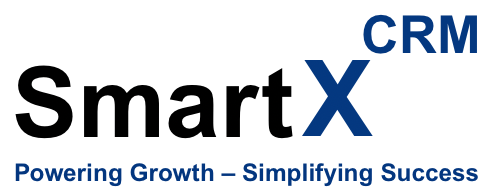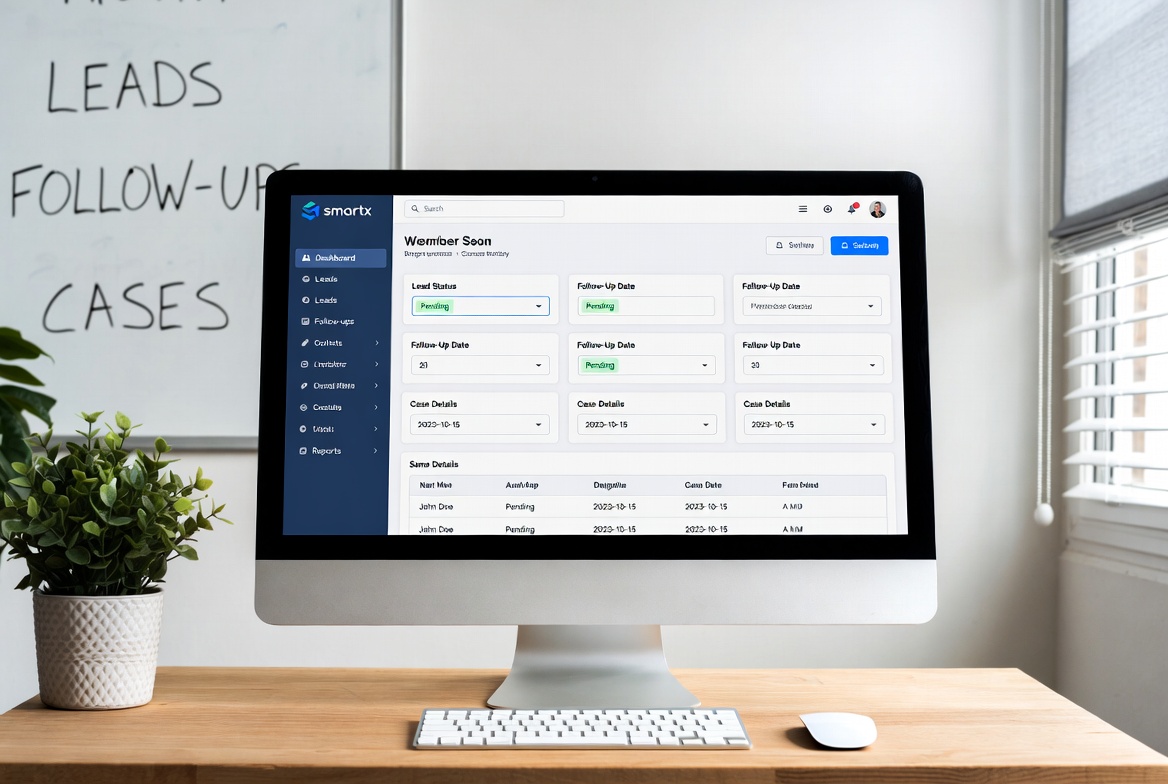In today’s rapidly evolving healthcare landscape, medical professionals are constantly seeking innovative solutions to enhance patient care while streamlining administrative processes. The integration of Customer Relationship Management (CRM) software specifically designed for healthcare providers has emerged as a game-changing technology that revolutionizes how medical practices manage patient relationships, optimize workflows, and deliver exceptional care experiences.
Healthcare CRM systems have transformed from simple contact management tools into comprehensive patient relationship management platforms that address the unique challenges faced by modern healthcare providers. From small private practices to large hospital networks, healthcare CRM software offers unprecedented opportunities to improve patient engagement, enhance operational efficiency, and drive practice growth through data-driven insights and automated processes.
Understanding Healthcare CRM: More Than Traditional Customer Management
Healthcare CRM software represents a specialized evolution of traditional customer relationship management systems, specifically tailored to meet the complex requirements of medical practices, hospitals, and healthcare service providers. Unlike conventional CRM solutions designed for sales and marketing, healthcare CRM platforms integrate patient care coordination, appointment management, treatment tracking, and compliance monitoring into a unified system that prioritizes patient outcomes while maintaining operational excellence.
The fundamental difference between standard CRM systems and healthcare-focused solutions lies in their approach to relationship management. While traditional CRMs focus primarily on lead conversion and sales optimization, healthcare CRM software emphasizes patient journey management, care continuity, and long-term health outcomes. This distinction makes healthcare CRM an indispensable tool for modern medical practices seeking to deliver personalized, efficient, and effective patient care.
Healthcare providers who implement comprehensive CRM solutions like SmartX CRM’s healthcare management system report significant improvements in patient satisfaction, operational efficiency, and practice profitability. These systems serve as the central nervous system for healthcare operations, connecting patient data, clinical workflows, administrative processes, and communication channels into a cohesive ecosystem that supports both providers and patients throughout their healthcare journey.
1. Enhanced Patient Engagement: Building Stronger Healthcare Relationships
Personalized Communication Strategies for Better Patient Outcomes
One of the most significant benefits of healthcare CRM software is its ability to facilitate meaningful, personalized patient engagement that extends far beyond traditional appointment scheduling and basic communication. Modern healthcare CRM platforms enable providers to create comprehensive patient profiles that include medical history, treatment preferences, communication preferences, family dynamics, and lifestyle factors that influence health outcomes.
Through advanced segmentation capabilities, healthcare providers can deliver targeted health education content, preventive care reminders, and wellness programs that resonate with specific patient populations. For instance, diabetic patients can receive automated glucose monitoring reminders, nutritional guidance, and exercise recommendations, while pregnant patients receive prenatal care schedules, nutritional advice, and preparation materials for different stages of pregnancy.
Multi-Channel Patient Communication Excellence
Healthcare CRM systems excel in orchestrating multi-channel communication strategies that meet patients where they are most comfortable and responsive. Modern platforms integrate email marketing, SMS messaging, patient portals, mobile applications, and even social media interactions into cohesive communication workflows that maintain consistency across all touchpoints.
Patients increasingly expect healthcare providers to communicate through their preferred channels, whether that’s receiving appointment confirmations via text message, accessing lab results through secure patient portals, or receiving health tips through email newsletters. Healthcare CRM software enables providers to honor these preferences while maintaining HIPAA compliance and ensuring that all communications are properly documented and tracked.
The impact of improved patient engagement extends beyond immediate satisfaction metrics to encompass long-term health outcomes, treatment adherence, and patient retention. Studies consistently demonstrate that engaged patients are more likely to follow treatment plans, attend follow-up appointments, and maintain long-term relationships with their healthcare providers, ultimately leading to better health outcomes and increased practice revenue.
2. Streamlined Appointment Scheduling: Optimizing Healthcare Operations
Intelligent Scheduling That Reduces No-Shows and Maximizes Efficiency
Traditional appointment scheduling systems often create bottlenecks that frustrate both patients and healthcare staff, leading to inefficient resource utilization, increased no-show rates, and diminished patient satisfaction. Healthcare CRM software transforms appointment scheduling from a reactive administrative task into a proactive, intelligent process that optimizes provider schedules while accommodating patient preferences and needs.
Advanced healthcare CRM platforms incorporate predictive analytics that analyze historical appointment patterns, patient behavior data, and provider availability to suggest optimal scheduling strategies. These systems can automatically identify patients who are most likely to no-show based on previous patterns and implement targeted intervention strategies, such as additional reminder communications or flexible rescheduling options.
Automated Scheduling Workflows and Patient Self-Service
Modern healthcare CRM solutions offer sophisticated self-service scheduling capabilities that empower patients to book, modify, or cancel appointments through patient portals or mobile applications. These platforms integrate real-time provider availability, procedure requirements, and patient preferences to present optimal appointment options that meet everyone’s needs.
The automation extends beyond basic scheduling to include comprehensive workflow management that coordinates pre-appointment preparations, insurance verification, patient intake processes, and post-appointment follow-up activities. For example, when a patient schedules a specialist consultation, the system can automatically trigger insurance pre-authorization requests, send pre-appointment health questionnaires, coordinate necessary lab work, and ensure that all relevant medical records are available to the provider before the appointment.
Healthcare providers utilizing advanced CRM automation features report significant reductions in administrative overhead, improved appointment slot utilization, and enhanced patient satisfaction scores related to scheduling convenience and communication.
3. Superior Follow-ups and Reminder Systems: Ensuring Continuity of Care
Proactive Patient Care Through Intelligent Automation
Effective follow-up care represents one of the most critical aspects of healthcare delivery, directly impacting patient outcomes, treatment adherence, and long-term health management. Healthcare CRM software revolutionizes follow-up processes by implementing intelligent automation systems that ensure no patient falls through the cracks while maintaining the personal touch that patients value in their healthcare relationships.
These advanced systems can track complex treatment protocols, medication schedules, and preventive care requirements across entire patient populations, automatically generating appropriate follow-up communications and care reminders based on individual patient needs and clinical guidelines. For instance, patients recovering from cardiac procedures receive automated reminders for cardiac rehabilitation sessions, medication adherence checks, and lifestyle modification support, while cancer patients receive chemotherapy scheduling, symptom monitoring prompts, and emotional support resources.
Comprehensive Care Coordination and Treatment Adherence
Healthcare CRM platforms excel in coordinating care across multiple providers, specialties, and care settings, ensuring that all members of a patient’s healthcare team remain informed and aligned throughout the treatment process. These systems can automatically share relevant patient updates, test results, and treatment modifications with appropriate team members while maintaining strict privacy controls and audit trails.
The reminder systems extend beyond simple appointment notifications to encompass comprehensive health management support, including medication reminders, lifestyle modification coaching, preventive care scheduling, and health monitoring prompts. Patients receive personalized reminders delivered through their preferred communication channels, with messaging that reflects their individual health goals, treatment plans, and communication preferences.
Healthcare practices implementing robust follow-up and reminder systems through CRM platforms consistently report improved patient adherence to treatment protocols, reduced readmission rates, and enhanced patient satisfaction scores related to feeling supported and cared for throughout their healthcare journey.
4. Data-Driven Patient Care: Leveraging Analytics for Better Outcomes
Advanced Analytics and Predictive Healthcare Insights
The integration of sophisticated analytics capabilities within healthcare CRM systems represents a paradigm shift toward evidence-based, personalized medicine that leverages comprehensive patient data to drive clinical decision-making and improve health outcomes. Modern healthcare CRM platforms collect, analyze, and interpret vast amounts of patient data from multiple sources, including electronic health records, patient-reported outcomes, wearable devices, and social determinants of health information.
These analytics capabilities enable healthcare providers to identify patterns, trends, and risk factors that might not be apparent through traditional clinical assessment methods. For example, CRM analytics can identify patients who are at high risk for medication non-adherence based on historical patterns, demographic factors, and social determinants, enabling providers to implement targeted intervention strategies before problems occur.
Population Health Management and Preventive Care Optimization
Healthcare CRM systems excel in population health management, enabling providers to analyze health trends across their entire patient base and implement targeted interventions that improve outcomes while controlling costs. These platforms can identify patient cohorts that would benefit from specific preventive care programs, chronic disease management initiatives, or wellness interventions based on comprehensive data analysis and risk stratification.
The predictive capabilities extend to resource planning and operational optimization, helping healthcare practices anticipate patient volumes, staffing requirements, and equipment needs based on historical patterns and predictive modeling. This intelligence enables more efficient resource allocation, improved patient access, and better financial performance.
Healthcare organizations leveraging data-driven CRM strategies for patient care report significant improvements in clinical outcomes, patient satisfaction, operational efficiency, and financial performance, demonstrating the tangible value of analytics-driven healthcare delivery.
Why Healthcare Providers Choose CRM: Beyond Basic Patient Management
Comprehensive Practice Management Integration
The decision to implement healthcare CRM software extends far beyond simple patient contact management to encompass comprehensive practice transformation that touches every aspect of healthcare delivery. Modern healthcare CRM platforms integrate seamlessly with existing electronic health records (EHR) systems, practice management software, billing platforms, and clinical decision support tools to create unified ecosystems that support both clinical and administrative workflows.
This integration eliminates data silos that traditionally hampered healthcare operations, enabling providers to access comprehensive patient information, treatment histories, communication records, and outcome data from a single platform. The result is more informed clinical decision-making, improved care coordination, and enhanced operational efficiency that benefits both providers and patients.
Regulatory Compliance and Security Excellence
Healthcare CRM systems are specifically designed to meet the stringent regulatory requirements that govern healthcare data management, including HIPAA compliance, data security standards, and audit trail requirements. These platforms incorporate advanced security features, encryption protocols, and access controls that protect sensitive patient information while enabling authorized users to access the information they need to provide effective care.
The compliance capabilities extend beyond basic security measures to include comprehensive audit trails, consent management, data governance protocols, and reporting capabilities that support regulatory compliance and quality improvement initiatives. Healthcare providers can demonstrate compliance with regulatory requirements while maintaining the flexibility and efficiency that CRM systems provide.
Advanced Healthcare CRM Features That Drive Practice Success
Marketing Automation and Practice Growth
Healthcare CRM platforms offer sophisticated marketing automation capabilities specifically designed for healthcare practices, enabling providers to grow their practices while maintaining focus on patient care quality. These systems can identify opportunities for service line expansion, patient referral programs, and community outreach initiatives based on patient data analysis and market intelligence.
The marketing capabilities include automated patient education campaigns, preventive care reminders, wellness program promotions, and community health initiatives that position healthcare practices as trusted health partners rather than transactional service providers. This approach builds stronger patient relationships while attracting new patients through positive word-of-mouth and community engagement.
Revenue Cycle Optimization and Financial Performance
Modern healthcare CRM systems integrate revenue cycle management capabilities that optimize financial performance while maintaining focus on patient care quality. These platforms can track patient payment patterns, insurance coverage changes, treatment plan adherence, and service utilization to identify opportunities for revenue optimization and cost reduction.
The financial integration extends to comprehensive reporting and analytics that provide insights into practice performance, patient acquisition costs, lifetime patient value, and service line profitability. This intelligence enables healthcare practices to make data-driven decisions about resource allocation, service offerings, and growth strategies.
SmartX CRM: Leading Healthcare CRM Innovation
Tailored Solutions for Healthcare Excellence
SmartX CRM has established itself as a leading provider of healthcare-focused CRM solutions that address the unique challenges and opportunities facing modern healthcare practices. The platform combines comprehensive patient relationship management capabilities with advanced analytics, automation tools, and integration capabilities that support healthcare practices of all sizes and specialties.
The SmartX CRM healthcare solution includes specialized features for patient management, appointment scheduling, follow-up automation, marketing campaigns, and practice growth initiatives that are specifically designed for healthcare environments. The platform’s flexibility enables customization for different medical specialties while maintaining the core functionality that drives practice success.
Integration and Scalability for Growing Practices
SmartX CRM’s healthcare platform is designed to scale with growing practices, from solo practitioners to large medical groups and healthcare systems. The platform’s integration capabilities ensure seamless connectivity with existing healthcare technology infrastructure while providing the flexibility to adapt to changing practice needs and regulatory requirements.
Healthcare practices utilizing SmartX CRM benefit from comprehensive lead management capabilities that help attract new patients, advanced automation tools that streamline operations, and robust analytics that drive continuous improvement in patient care and practice performance.
Implementing Healthcare CRM: Best Practices for Success
Strategic Planning and Change Management
Successful healthcare CRM implementation requires comprehensive strategic planning that addresses technology integration, workflow optimization, staff training, and change management considerations. Healthcare practices should begin with clear objectives for CRM implementation, including specific goals for patient engagement, operational efficiency, and practice growth.
The implementation process should include thorough assessment of existing workflows, identification of integration requirements, development of staff training programs, and establishment of success metrics that align with practice objectives. Successful implementations typically involve phased rollouts that allow for gradual adoption and continuous refinement based on user feedback and performance data.
Staff Training and Adoption Strategies
Healthcare CRM success depends heavily on staff adoption and effective utilization of platform capabilities. Comprehensive training programs should address both technical functionality and strategic implementation of CRM capabilities within clinical and administrative workflows.
Training should emphasize the benefits of CRM utilization for both staff efficiency and patient care quality, helping team members understand how the platform supports their daily responsibilities while improving overall practice performance. Ongoing support and advanced training opportunities ensure that practices maximize their CRM investment over time.
Measuring Healthcare CRM Success: Key Performance Indicators
Patient Engagement and Satisfaction Metrics
Healthcare practices should track comprehensive metrics that demonstrate the impact of CRM implementation on patient engagement, satisfaction, and outcomes. Key indicators include patient communication response rates, appointment adherence, treatment compliance, patient retention rates, and satisfaction scores related to communication and care coordination.
Advanced analytics capabilities enable practices to track patient journey metrics, identifying opportunities for improvement in communication strategies, care coordination, and service delivery. These insights drive continuous improvement in patient engagement and care quality.
Operational Efficiency and Financial Performance
Successful healthcare CRM implementation drives measurable improvements in operational efficiency and financial performance. Key metrics include appointment scheduling efficiency, no-show rates, staff productivity, patient acquisition costs, lifetime patient value, and revenue per patient.
The integration of CRM capabilities with practice management systems enables comprehensive performance tracking that demonstrates return on investment and identifies opportunities for further optimization.
Future Trends in Healthcare CRM Technology
Artificial Intelligence and Machine Learning Integration
The future of healthcare CRM lies in the integration of artificial intelligence and machine learning capabilities that enhance predictive analytics, automate complex workflows, and provide intelligent insights that support clinical decision-making and practice management.
These advanced capabilities will enable healthcare practices to predict patient needs, optimize resource allocation, and personalize care delivery at unprecedented levels while maintaining the human touch that patients value in healthcare relationships.
Telehealth Integration and Remote Patient Monitoring
Healthcare CRM platforms are evolving to integrate comprehensive telehealth capabilities and remote patient monitoring systems that extend care delivery beyond traditional clinical settings. These integrations enable continuous patient engagement and monitoring while maintaining comprehensive documentation and care coordination.
Conclusion: Transforming Healthcare Through Smart CRM Implementation
The benefits of healthcare CRM software extend far beyond basic patient contact management to encompass comprehensive practice transformation that improves patient outcomes, enhances operational efficiency, and drives sustainable practice growth. Healthcare providers who embrace CRM technology position themselves to deliver exceptional patient experiences while achieving their clinical and business objectives.
SmartX CRM’s comprehensive healthcare solution provides the tools, capabilities, and support that healthcare practices need to succeed in today’s competitive healthcare environment. From improved patient engagement and streamlined operations to data-driven insights and practice growth opportunities, healthcare CRM represents a strategic investment in the future of healthcare delivery.
The question is not whether healthcare practices should implement CRM technology, but rather how quickly they can leverage these powerful tools to transform their operations and achieve their goals for patient care excellence and practice success. The future of healthcare belongs to practices that embrace innovation while maintaining their commitment to exceptional patient care, and healthcare CRM software provides the foundation for that success.
Healthcare practices ready to transform their patient relationships and practice performance should explore the comprehensive capabilities of SmartX CRM’s healthcare solution and discover how advanced CRM technology can support their vision for healthcare excellence. The journey toward improved patient care and practice success begins with the decision to embrace the power of healthcare CRM technology.





Leave a comment: